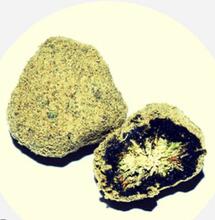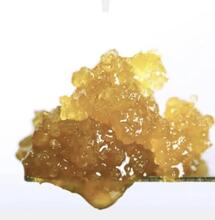Study finds CBN improves sleep without intoxicating effects

A new study is the first to provide objective evidence that cannabinol (CBN) can improve sleep.
Scientists at the University of Sydney's research is the first to use objective measures to show that the minor cannabinoid cannabinol (CBN) increases sleep in an animal study. The findings were published in the journal Neuropsychopharmacology.
What is CBN?
CBN is an end product of one of the primary intoxicating cannabinoids in cannabis, delta9-tetrahydrocannabinol, better known as THC. THC slowly converts to CBN over time, meaning that older cannabis contains higher levels of the compound. It has been suggested that older cannabis use is associated with a more sleepy cannabis “high.”
In the United States, highly purified CBN products are marketed as sleep aids, but to date, there has been little high-quality scientific evidence to support this idea.
The research team at the Lambert Initiative for Cannabinoid Therapy tested the effects of purified CBN on rats' sleep.
The experiments used high-tech monitoring to provide information on the rats’ sleep patterns, including the amount of non-rapid eye movement (NREM) sleep and rapid eye movement (REM) sleep.
NREM is a deep sleep that promotes physical recovery and strengthens memory, while REM sleep is associated with dreaming and emotional processing.
“For decades, cannabis folklore has suggested that aged cannabis makes users sleepy due to the accumulation of CBN, but there has been no convincing evidence for this,” said the study’s lead author, Professor Jonathon Arnold.
“Our study provides the first objective evidence that CBN increases sleep, at least in rats, by beneficially altering sleep architecture.”
Professor Arnold added: “CBN was found to increase both NREM and REM sleep, leading to an increase in total sleep time, with an effect comparable to that of the well-known sleep aid zolpidem.”
According to the author, unlike its parent molecule, THC, CBN did not appear to intoxicate rats.
While THC’s effects are mediated by activation of the CB1 cannabinoid receptors in the brain, the study found that unlike THC, CBN only weakly activates these receptors.
The researchers also found that a metabolite, which is a chemical produced by the metabolism of a larger molecule in the body, of CBN significantly affected CB1 cannabinoid receptors.
The metabolite 11-OH CBN had some impact on sleep architecture, which may contribute to CBN’s overall effects on sleep.
At this stage however, the results are limited to tests that have been carried out in rodent models and further research is required to see if this translates to human test subjects.
More From Soft Secrets:
The Potential of Minor Cannabinoids










